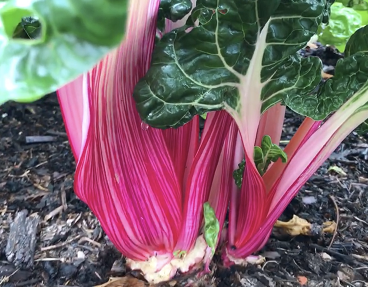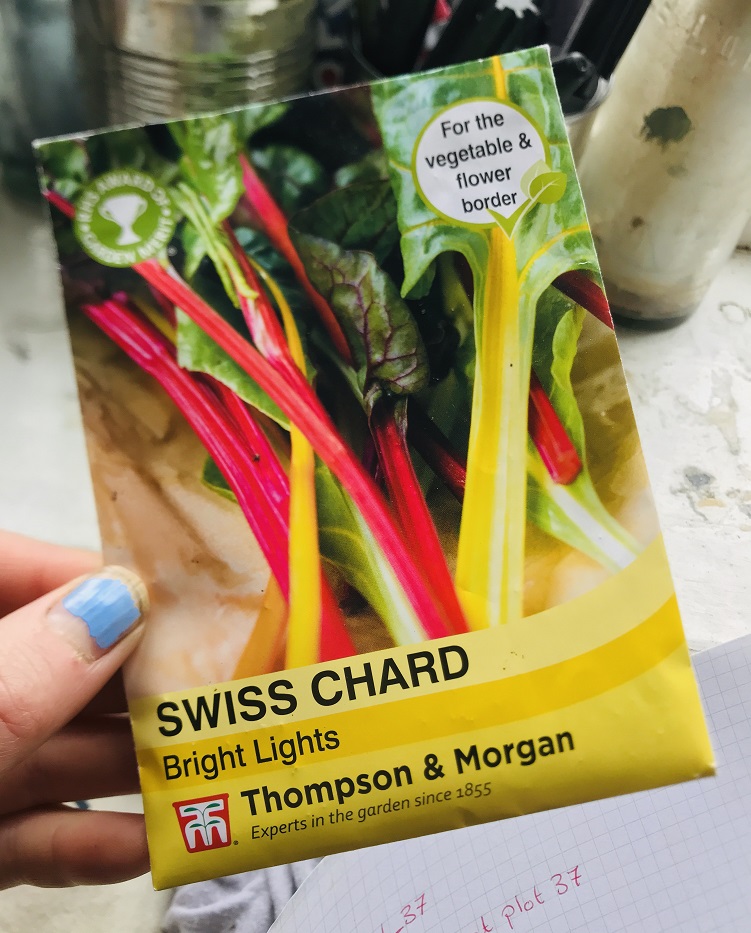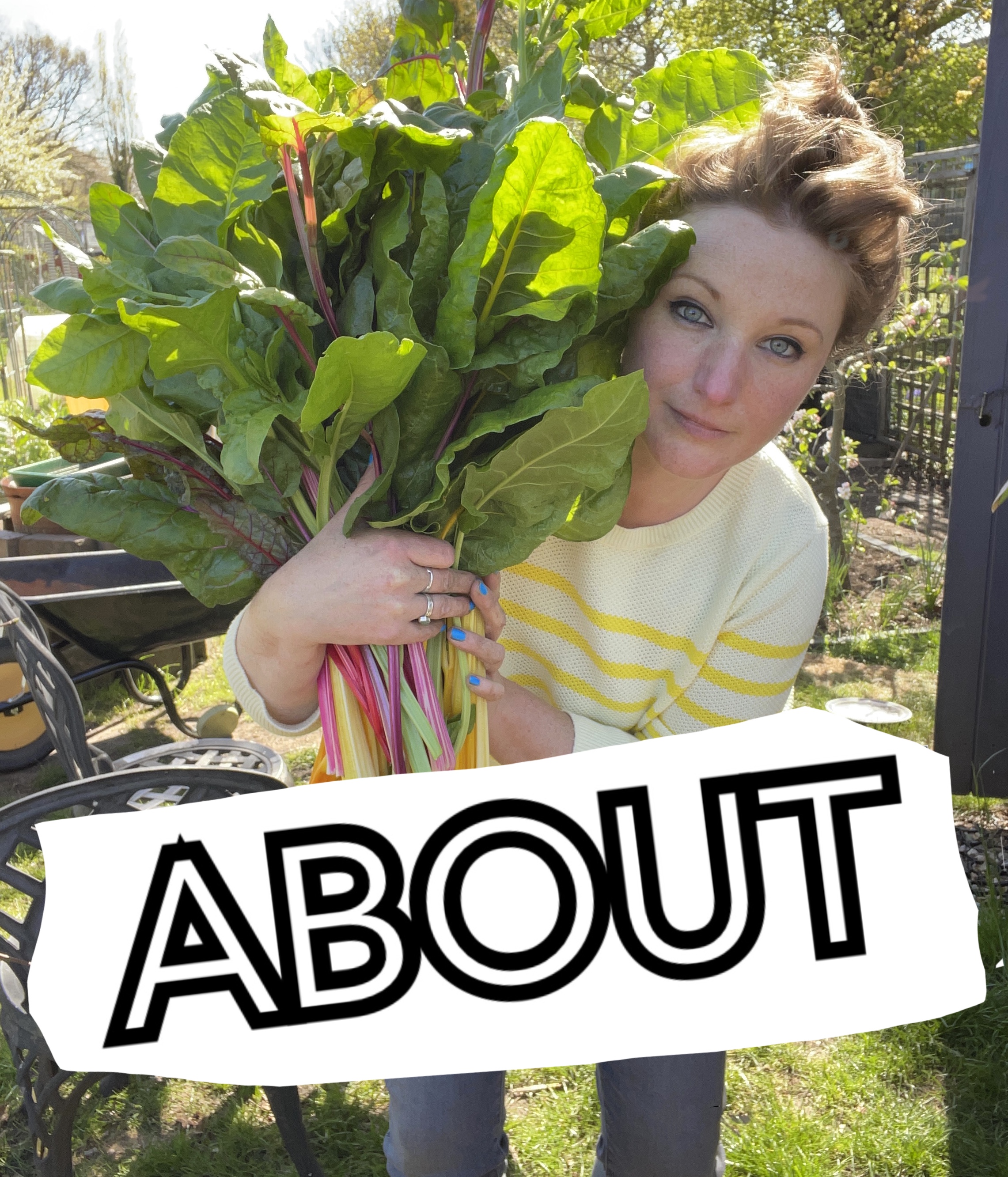CHARD. The two-in-one vegetable of the gods…
If any of you follow me on Instagram you will know how much I love chard… but we haven’t always seen eye to eye. The problem was that i hadn’t realised that it needs to be treated like two separate vegetables.
The stems. And the Leaf.
The leaves are delicate in flavour, quick cooking, buttery soft and make the finest lasasgn known to man*.
*says me.
The stems on the otherhand are very strong tasting with an earthy flavour and can be eaten more like aspargus or even celery. Separately they are both delicious but when cooked together you tend to get over cooked leaves, under cooked stems and a generally muddy flavour.
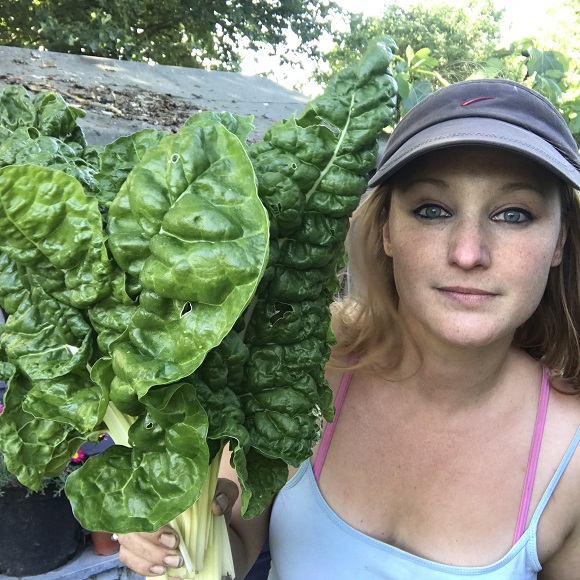
Spinach vs. Chard. And whats the diff?
Spinach and Chard are from two totally different families. Chard, Swiss Chard, Silverbeet and Bieta are all true Beta vulgaris subsp. vulgaris. Interestingly so is Beetroot but when you think about it you can see how closely related they are from the stems! Whereas true spinach (always with thin green stems) is Spinosa oleracea. I say ‘true spinach’ because the term has come to be used to describe a whole plethora of plants that we eat the leaves of like Malabar Spinach or Tree spinach who are both completely unrelated. Just to confuse things a little more Perpetual Spinach is in fact a chard…
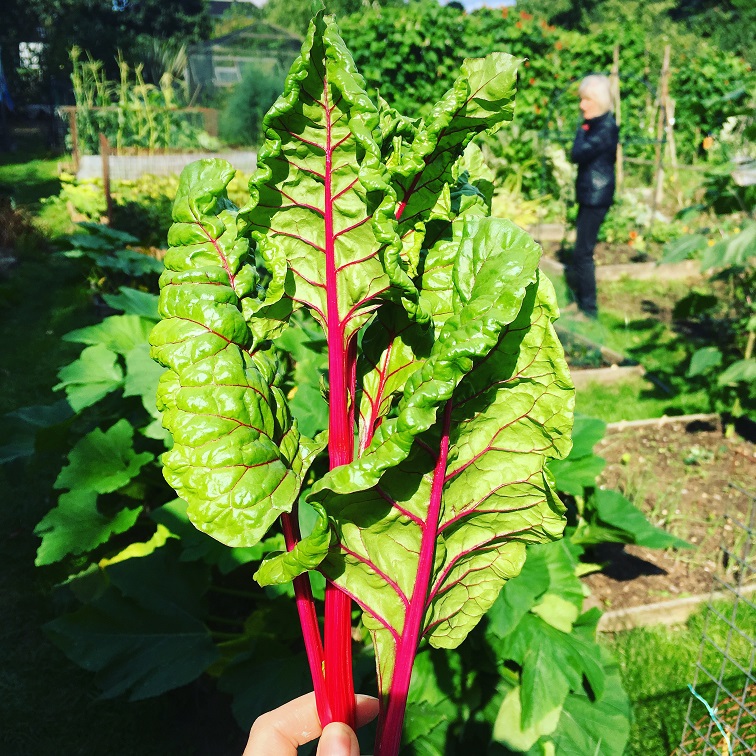
Spinach has a far shorter picking time, its is less tolerant of cold (it collapses into green sludge if a frost is in the air) and will bolt the very second we get a hot patch. This is because its is an annual, where as chard is a biennial. Chard is also a more vigorous animal, with much larger leaves.
The differences are clear when you look at the seed. Chard (and beetroot) seed is compound, a little cluster of seeds meaning you get more than one plant germinate from each. Spinach seed is smooth and singular.
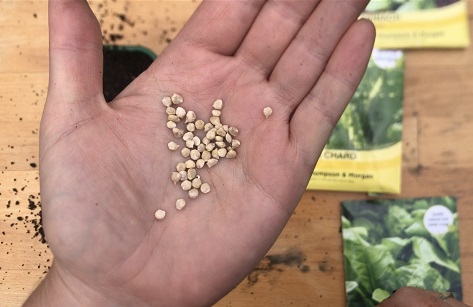
Spinach Seed
Spinosa oleracea
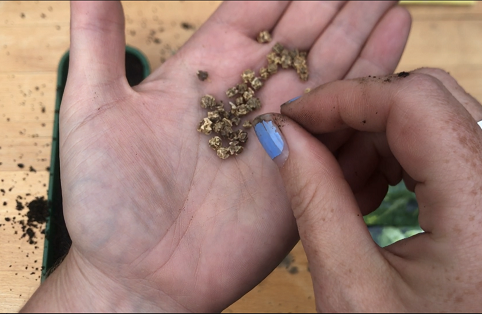
Chard Seed
Beta vulgaris subsp. vulgaris
So…Growing Chard!
Chard wants a fertile, free draining soil in full sun (don’t we all?).
If direct sowing – sow at a spacing of 5-10cm in drills about 2cm deep, in rows 30cm apart. They will need to be thinned.
I know thinning out is hard to do but these plants really benefit from a bit of space around them to grow big. You can wait until they are big enough to be used in a salad if you can’t cope with the waste of a young life.
If you are sowing in seeds trays, 2 seeds per cell should do it and transfer the biggest of them out into their final position when they have 2 true leaves.
If like me you have a tenancy to leave plants in their seed trays rather a long time, try not to with these because they will show their displeasure.
Whether in the ground or in pots, keep them well watered in the hot weather and watch them grow. You can start harvesting the outer leaves from each plant as and when they are big enough.
Then you make Chard Lasagna…
There are loads of different varieties of chard to choose from and so many are fab but these are probably my 4 favorites:
Bieta
Franchi Seeds (Amazon)
This was the one i originally fell in love with and i hadn’t actually realised it was chard! It hasn’t got the flashy stems of the others but its probably still my favorite. Its a thinner-stemmed one, although i still separate them.
Can’t beat this steamed with butter and nutmeg… *swoon*
Peppermint
Kings Seeds (Amazon)
Named after their almost flourescent pink and white striped stems (that look like sticks of rock) rather than the flavour of peppermint.
Huge big dark green glossy leaves, that aren’t tough to eat. A reall joy, I love it!
'Bright Lights' Rainbow
Thompson and Morgan
‘Rainbow’ isn’t actually a variety in its self, its a mixed bag of Pink, Red, Yellow and White stemmed varieties.
For maximum impact – you can’t beat these.
Golden or Bright Yellow
Thompson and Morgan
As the name suggests, this one has yellow stems and it was an absolute favorite of mine last year. I love how the leaf veins keep their colour and the flavour was really fantastic!

